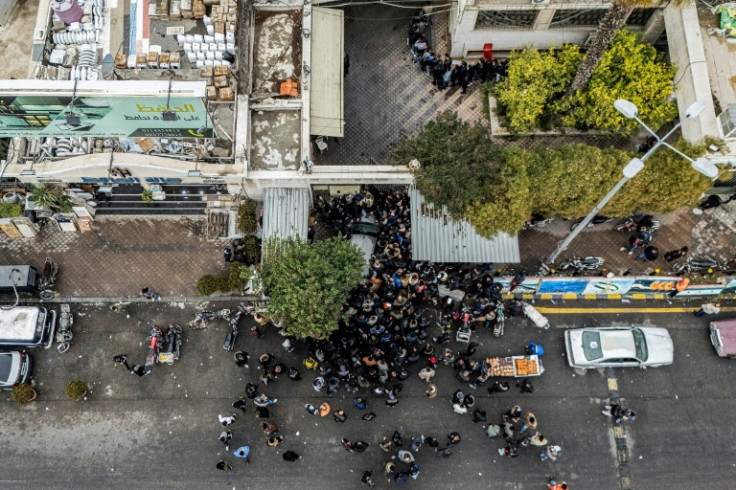
Syria's new leaders announced Tuesday that they had reached an agreement with the country's rebel groups on their dissolution and integration under the defence ministry.
Absent from the meeting were representatives of the US-backed, Kurdish-led forces that control swathes of Syria's northeast.
The meeting between the rebel groups and Syria's new leader Ahmed al-Sharaa "ended in an agreement on the dissolution of all the groups and their integration under the supervision of the ministry of defence", said a statement carried by the SANA news agency and the authorities' Telegram account.
The announcement comes just over two weeks after president Bashar al-Assad fled Syria, following a lightning offensive spearheaded by Sharaa's Hayat Tahrir al-Sham (HTS) group.
On Sunday Sharaa, long known by his nom de guerre Abu Mohammed al-Jolani, had said the new authorities would "absolutely not allow there to be weapons in the country outside state control".
That also applied to the Kurdish-led Syrian Democratic Forces (SDF), he said.
Last week, the military chief of HTS told AFP that Kurdish-held areas would be integrated under the new leadership, and that "Syria will not be divided".
Thirteen years of civil war in Syria has left more than half a million people dead and fragmented the country into zones of influence controlled by different armed groups backed by regional and international powers.
SDF spokesman Farhad Shami told AFP the question of his group's integration into the national armed forces "should be discussed directly".
He did not dismiss the possibility, saying that doing so would strengthen "the whole of Syria".
Shami added that his forces prefer "dialogue with Damascus to resolve all questions".
Turkey has long held ties with HTS, and analysts say that since the Islamists took over Syria, both sides have sought to profit from the relationship.
Ankara accuses the People's Protection Units (YPG) -- the main component of the SDF -- of being affiliated with the Kurdistan Workers' Party (PKK), which has waged a decades-long insurgency on Turkish soil.
Earlier this month, a Syria specialist who advises Western diplomats in Turkey said: "The Turks would like to push HTS into striking at the Kurds but HTS doesn't want to get involved."
Although Ankara's role in Assad's overthrow had been "overstated", Turkey now has "real economic leverage" thanks to the 900-kilometre (560-mile) border it shares with Syria, the source said on condition of anonymity.
How the situation develops will also depend on US President-elect Donald Trump, who takes office on January 20 but has already proclaimed that "Turkey is going to hold the key to Syria".
Since late November, the SDF has been battling Turkey-backed fighters who launched an offensive on Kurdish-held areas at the same time as HTS's anti-Assad campaign.
On Tuesday, the SDF said in a statement its fighters were waging deadly combat to the east of the key city of Manbij, with 16 deaths in its ranks.
Syria's Kurds, long oppressed under Assad's rule, saw an opportunity during the war to carve out a semi-autonomous territory in the northeast.
They proved an indispensable ally to the US-led coalition battling the Islamist State group.
Since Assad's ouster on December 8, they have issued numerous statements welcoming his downfall, and also put out calls for dialogue with the new leadership in Damascus and with Turkey.
In Syria's northeast, both the Kurdish flag and the three-star independence-era flag used by the new authorities can be seen.
Meanwhile, Syria's new foreign minister Assaad Hassan al-Shibani took to X Tuesday evening to warn Iran against "propagating chaos" in Syria and called on it to respect Syrian sovereignty.
On Monday, Iran's foreign ministry had said it had not any direct contact with Syria's new leaders but called on them to not ley Syria "become a refuge for terrorism," though it did also call to "preserve the sovereignty and integrity" of the country.




